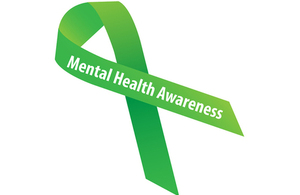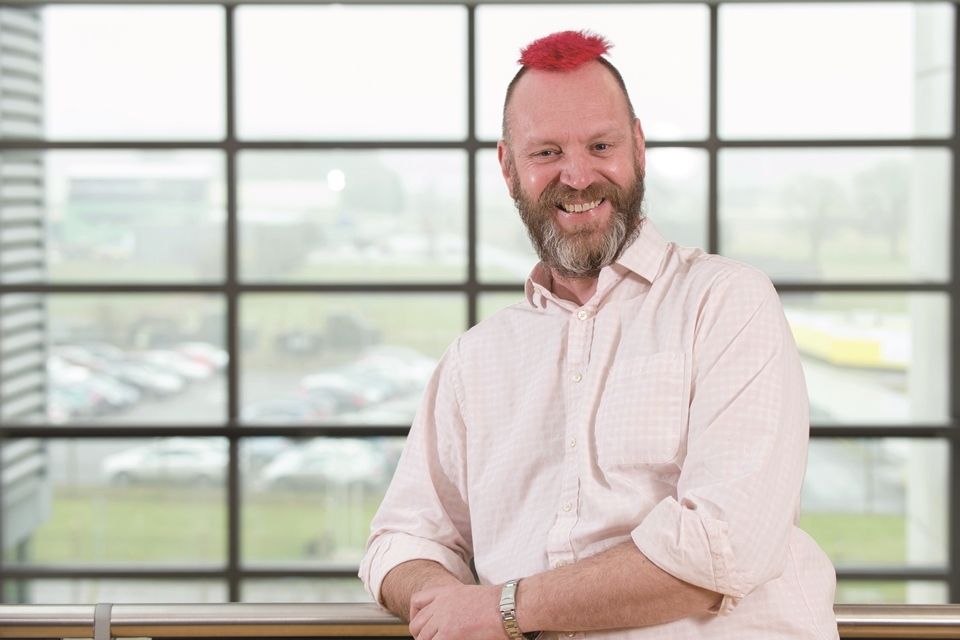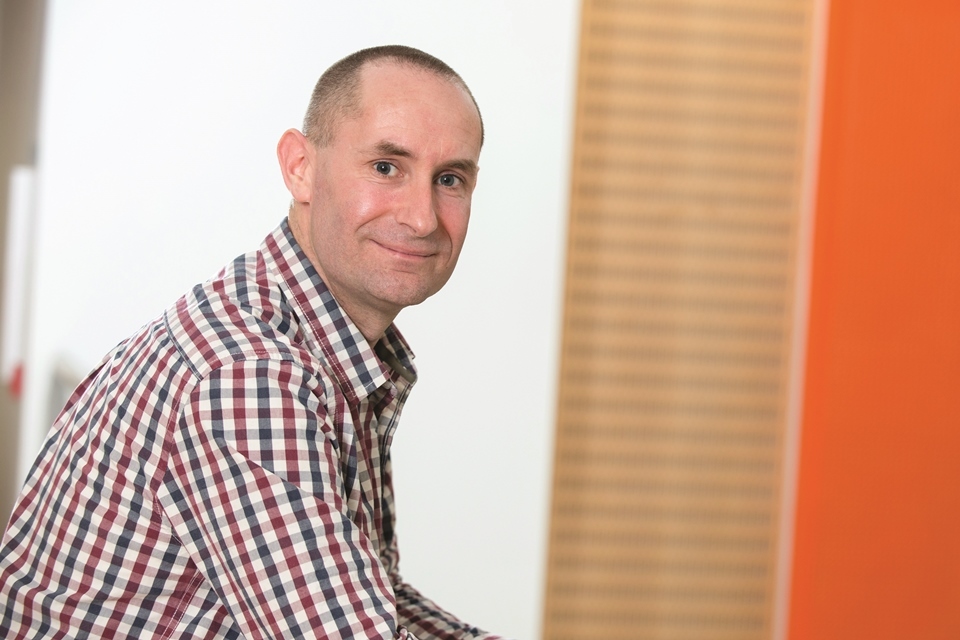Dstl voices: mental health stories
Mental health experiences from 3 people who work at Dstl, sharing their personal stories and the support they receive from the organisation.

Mental Health Awareness Ribbon
Mental health is an important part of wellbeing. Supporting our people and helping them to manage their mental wellbeing is a high priority to ensure they are happy at work.
Dstl has a dedicated employee support group and a network of mental health advocates, plus an excellent occupational health service and a confidential counselling and wellbeing service.
Mental health covers a wide range of conditions and directly affects one in four people every year, but has the potential to impact all of us at some point during our lives. The stigma around mental health can prevent people from talking and sharing their problems, which is often the first step to getting better.
Take a closer look at the mental health experiences of three people who work at Dstl, all sharing their personal stories and talking about the support they receive from the organisation.
Clive Buckenham – Dstl Project Manager

Clive Buckenham, Dstl Project Manager
This wasn’t an easy article to write. I was recently reminded how bruising my mental health has been to family and friends. I have Generalised Anxiety Disorder (GAD). I now go months between panic attacks and crises of confidence. Setbacks that once would have triggered long-term sickness are now managed.
You see, the brain is incredible. The vivid terrors that haunted my waking dreams are now only half-remembered phantoms of the night. They are fading, distant memories.
The key to my survival at work was the support from my line manager. I was incredibly lucky because, no matter how obdurate, unreliable or hurtful I was, my manager never gave up on me. She understood how important it was to get help. She approached the Dstl Occupational Health Service (OHS) who started giving both of us support and advice. It helped me and it stopped her from getting ill. The latter point is important because being around mental illness isn’t easy. It’s hard work. Nothing is consistent. Help is essential.
If you have a colleague, friend or family member who is struggling with their mental health then help is available. At Dstl there are the Mental Health Advocates who can signpost support including OHS, the Employee Assistance Programme and the EnableD mental health sub-group. Externally, the local GP is an important first point of contact for help. In a crisis, there is Samaritans who can be contacted by telephone and by email. You can help change lives by listening and knowing where to get help.
If you are struggling with your mental health, please know that you are not alone. The people around you will not think worse of you for being ill and may even empathise from their own experiences. Please find the courage to be open and to reach out to the people you trust. To those people who are in your corner. Life will get better. I know because I’ve been where you are now. Good luck and take care.
Kirk Murray-Jones – Dstl Team Member

Kirk Murray-Jones, Dstl Team Member
There aren’t many reasons to be happy about mental illness. Indeed, for large periods of time it’s just horrific. I am on the bipolar spectrum. This means I spend some of my life living on the ceiling, and some of my life in the deepest, darkest despair.
The ups are great; I feel I can do anything. The downs are horrendous; I can’t leave the house, and a ringing phone can quite easily throw me over the edge. During those periods, I’ve not had a thought in my head. It’s petrifying, as someone who thinks for a living. I’ve realised that my ‘normal’ is very different to other peoples. Apparently, walking my dogs around the village while singing out loud and dancing is unusual.
A high level of risk taking is associated with bipolar. Luckily I’m on a lower rung of the bipolar ladder. For me, it’s about taking technical risk. I tend to have different insights to other people. Don’t get me wrong, I’m not saying that I have the best ideas (many of my thoughts are rubbish!) but I do have a lot of them. That, linked with my lack of filter (which can be hard for those around me), means I tend to share all of my ideas, using other people to filter my thoughts.
Why am I telling you this? I have had times when I have let myself and others down; these are times when I have not been mentally well. People do still believe in me, though. I have been given opportunity to get back into a lab, to think of those ‘out-there’ ideas; when I’m well, that is what I do.
I’ve been open about my experiences of mental health and in most cases people have accepted me for what I am. However, a few reactions surprised me. A small number of people physically moved away from me when I told them I was bipolar. The stigma does still exist, but it’s in decline.
I know lots of people are suffering in silence with mental health disorders. Now is the time to get some help. The stigma attached to these illnesses is slowly being removed. If you are struggling at the moment, talk to someone.
My experience tells me that Dstl is a safe environment to have the conversation. The mental health advocates, in my experience, are awesome. I am sharing this with you so that you can take that first step. It’s hard at the time, but it is the only way you will get help and get better.
I encourage everyone to be bold and start the conversation if they think someone is struggling. You never know, you might just save someone’s life.
David Nethercott – Dstl Team Leader

David Nethercott, Dstl Team Leader
During my life, I never gave much thought to issues of mental health and illness. I always knew it was there and that some people really suffered. Despite my uncle being diagnosed as bipolar, I always thought it was something that other people had, and that I wasn’t affected.
A couple of years ago that changed. I was going through a difficult time and I realised that my mental health was really suffering. I could point to several things in my life at work, home, friends, family…that were causes but, with hindsight, there was no one single cause. I was really struggling and neglecting myself but I didn’t know it until I heard someone else’s story. It made me sit up and realise that if I didn’t do something I could be heading for something bad.
So I sought help – which was a really hard thing to do. The stigma of mental health made it seem like admitting defeat and that I was letting myself down, but I now realise it was the complete opposite. Dstl’s Occupational Health service was brilliant, as was the help I got through the Employee Assistance Programme (EAP) on the telephone. I was also doing a Dstl course at the same time that, which combined with the EAP telephone counselling helped me understand myself more. I learned a lot about my personal strengths and weaknesses, which all helped me to deal with my anxiety and depression, and generally I became a better person all round. I became better able to recognise circumstances and understand my own reactions and the actions of others. I think it’s helped me to be better at my job as a team leader as well.
The moral of my story is: don’t ignore things. Early intervention is powerful and far better than being in denial until things get really bad. Take steps to positively look after your own mental health just like you would your physical health. There is a wealth of useful things online to help.
I think Dstl is a very safe place to talk about these issues, which is really important, as taking that first step can be very daunting. The occupational health service is fantastic; the EAP is always there any time of the day; the mental health advocate scheme is a great initiative. Both as a team leader and as someone who has struggled in the past with poor mental health, I am always happy to listen to anyone who thinks they may be suffering. Look after yourself.
Visit the Time to Change website for more support.
Find out more about working for Dstl and our current vacancies.
This article was first published to support Mental Health Awareness Week in 2018.